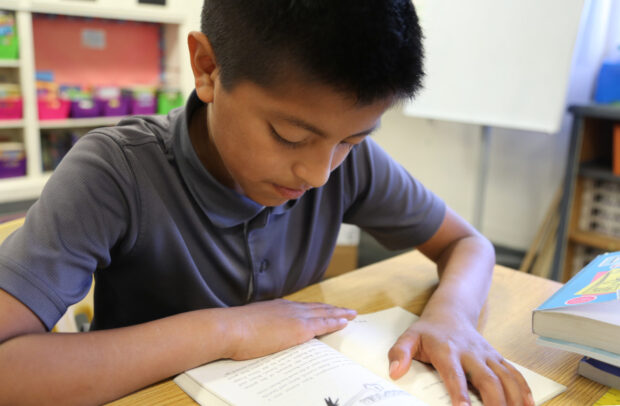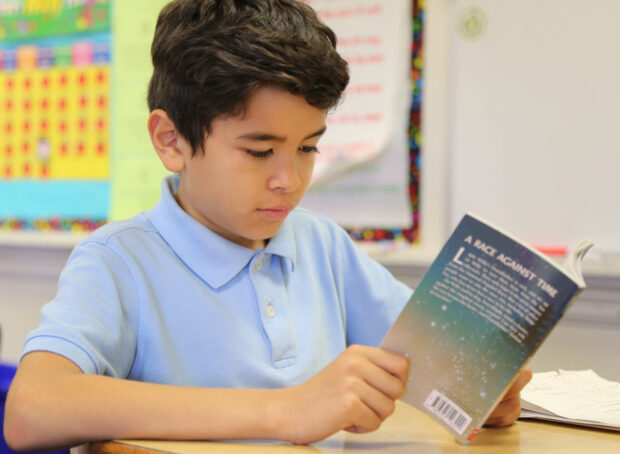CALDWELL — When Drake Davis entered Julie Alsup’s third-grade class at Lincoln Elementary School in August, he was reading at second grade level and at 101 words per minute.
Drake struggled with blending his letters and understanding the meaning of words.
By the end of third grade, Drake was reading at fifth-grade level and at 171 words per minute. His teacher watched him become inspired by reading.
“The growth was unbelievable,” Alsup said. “The progress was Drake’s to own.”
Lincoln Elementary School’s goal is to catch up every child who is behind in reading and watch some soar beyond grade-level expectations.
“We were frustrated that skills were being replicated in all the grade levels,” Lincoln instructional coach Debi Maughan said. “We needed to change.”
When teachers noticed reading problems last year, the staff led the charge and created a skills-based reading workshop — similar to mastery-based education. Students advance in reading groups as they master certain skills.
“If students don’t understand reading it will cause gaps,” Lincoln principal Tricia Stone said. “We were surprised when we saw high-performing students missing reading skills.”
How it works
To get reading numbers soaring, teachers learned to analyze test results and tailored instruction to serve struggling students. Student were tested in August on phonics and decoding words.
Kids were then divided into groups, based on their mastery of skills and areas where they needed to improve. Second- through fifth-grade students were mixed into groups of 10-20 students depending on scores on the phonics test. For 45 minutes every day, students learned the foundational skills of reading.
“Our worry was second-graders in the same group as fifth-graders, but students didn’t have an issue,” Stone said.
Students were broken into nine groups:
- Short vowels.
- Consonant blends with short vowels.
- Short vowels, digraphs and trigraphs.
- R-controlled vowels.
- Long vowel spelling.
- Variant vowels.
- Low-frequency vowel and consonant spelling.
- Multisyllabic words.
- Applied — basic comprehension skills.
“As the school year went on, it was obvious students were retaining information, and teachers saw noticeable improvement,” Stone said. “It’s a tool in the toolbox and we can polish this off and do it again.”
Teachers had a goal to produce solid readers ready for comprehension, vocabulary and fluency levels.
The data
Based on the August test results, 33 percent of students were at or above grade level. By the end of the school year, 70 percent had mastered reading concepts and were reading at or above grade level.
“We tried something new to improve our scores and it worked,” Stone said. “We started to look at the data and did something about it.”
One hundred percent of Lincoln’s students qualify for free and reduced lunch and 14.7 percent of the students are English language learners.
“Our students have challenges a lot of other students don’t have,” Stone said.
Teachers plan to use the same model for math next year.
If you’re an educator and interested in Lincoln Elementary School’s skills-based reading workshop, you can email Debi Maughan: [email protected].


